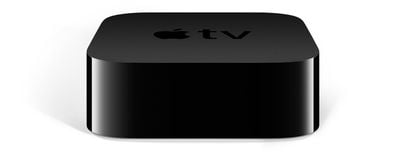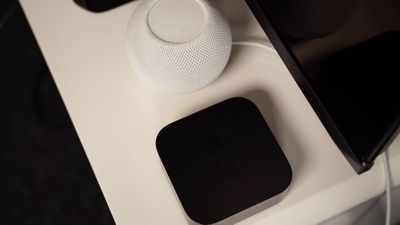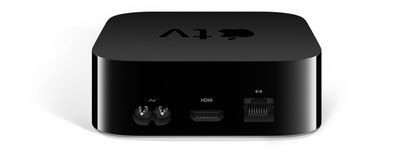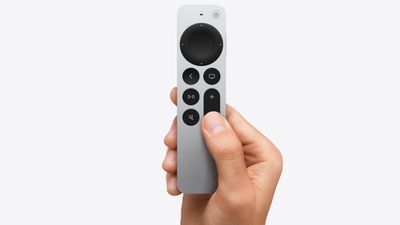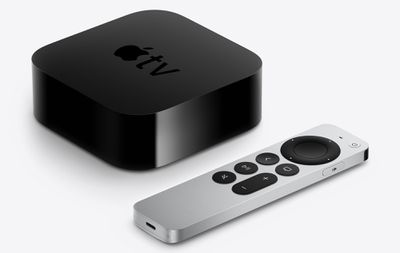In April 2021, Apple revealed the second-generation Apple TV 4K, bringing high framerate HDR with Dolby Vision to the Apple TV for the first time and the A12 chip for improved performance, alongside a redesigned Siri Remote. The Apple TV HD was first released in 2015 and has remained in Apple’s lineup since then as an entry-level option, and now it comes with the upgraded Siri Remote.
Should you consider purchasing the Apple TV HD to save money, or do you need the Apple TV 4K? Our guide answers the question of how to decide which of these two Apple TV set-top boxes is best for you.
Comparing the Apple TV HD and the Apple TV 4K
The Apple TV HD and Apple TV 4K share the same design and a number of basic features such as HDMI and the redesigned Siri Remote:
Similarities
- Design, dimensions, and weight
- Support for SDR
- HDMI port
- Ethernet port
- Infrared receiver
- HDMI-CEC, AirPlay, and Bluetooth
- Second-generation Siri Remote
There are a large number of meaningful differences between the Apple TV HD and Apple TV 4K that are worth highlighting, including their supported resolutions and processors. APPLE TV 4K
Differences
- Support for up to 1080p resolution
- Support for SDR
- Support for audio output with 7.1 channels
- HDMI 1.4
- 1.5 GHz dual-core Apple A8 chip
- 2GB RAM
- 32GB storage only
- 10/100 Ethernet
- Wi-Fi 5
- Bluetooth 4.0
- $149
Apple TV 4K (Second-Generation)
- Supports for up to 2160p (4K) resolution
- Support for SDR, HDR10, and Dolby Vision
- High framerate HDR up to 60-fps.
- Support for audio output with 7.1.4 channels with Dolby Atmos
- HDMI 2.1
- 2.49 GHz hexa-core Apple A12 Bionic chip
- 3GB RAM*
- 32GB or 64GB storage
- Gigabit Ethernet
- Wi-Fi 6
- Bluetooth 5.0
- Thread support
- $179 for 32GB model, $199 for 64GB model
Read on for a closer look at each of these aspects, and see what exactly both of the available Apple TV models have to offer.
Video
The main difference between the Apple TV HD and the Apple TV 4K is the resolutions that they support. The Apple TV HD supports resolutions up to Full HD at 1080p, while the Apple TV 4K supports resolutions up to Ultra HD at 2160p.
Both models support standard dynamic range, but only the Apple TV 4K supports HDR10 and Dolby Vision, for richer colors and deeper blacks. The Apple TV 4K also supports high framerate HDR up to 60-fps. High frame rate HDR video enables fast-moving action at 60 frames per second to play more smoothly and appear more lifelike.
With high frame rate support in AirPlay, videos shot on the iPhone 12 Pro can be displayed in full 60-fps Dolby Vision on the Apple TV 4K. Apple is also working with video providers around the world, including FOX Sports, NBCUniversal, Paramount+, Red Bull TV, and Canal+, as they begin to stream in high frame rate HDR.
In order to make the most of the Apple TV 4K’s better video capabilities, you will need to have an accompanying 4K TV with HDR. The video specifications of the Apple TV HD are sufficient for most older or lower-cost TVs, but for the best possible visual experience using technologies like 4K, HDR, and Dolby Vision, the Apple TV 4K is the better option, providing you have a relevant TV.
Audio
The Apple TV 4K also features more recent audio specifications with support for audio output with 7.1.4 channel surround sound with Dolby Atmos. The Apple TV HD, on the other hand, only supports audio output up to 7.1 channel surround sound.
Much like the differing video specifications of the two Apple TV models, the extent to which you can take advantage of the different audio specifications depends on your proprietary hardware. Basic home cinema setups will work well with the Apple TV HD, but for more advanced audio setups with Dolby Atmos, the Apple TV 4K is the better option.
A8 vs. A12
The second-generation Apple TV 4K features the A12 Bionic chip. The A12 Bionic chip powered the iPhone XS, XS Max, and XR in 2018, as well as the 2019 versions of the iPad Air and iPad Mini, and the 2020 entry-level iPad.
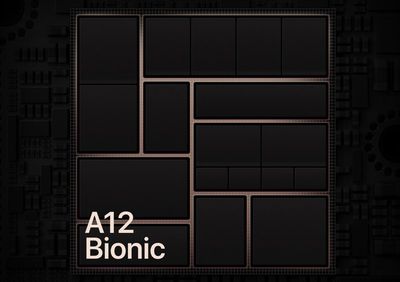
The A8 chip is considerably older and was first introduced with the iPhone 6 and iPhone 6 Plus in 2014. The A12 is a 2.49 GHz hexa-core chip and is markedly more powerful than the A8, which is a 1.5 GHz dual-core chip.
While processing power is not an absolute priority with a set-top box, the Apple TV 4K’s more recent A12 chip will be much more capable than the A8. Whether it comes to playing games, app launch speeds, or simply general responsiveness, the A12 is likely to be much more snappy.
The Apple TV HD also pairs the A8 with 2GB of memory, while the Apple TV 4K likely pairs the A12 with 3GB of memory.
Through progressive updates to tvOS, the A12 will guarantee better performance over time, and the Apple TV 4K’s A12 will be much more future-proof than the A8 in the Apple TV HD.
Storage APPLE TV 4K
While there was originally a 64GB storage configuration for the Apple TV HD, there is now only a 32GB option available. The Apple TV 4K is available in both 32GB and 64GB configurations.
If you plan on downloading a large number of applications or storing lots of content on the Apple TV itself, then the Apple TV 4K with 64GB of storage will be the best option.
As most media content on the Apple TV is streamed and not stored on the device itself, the amount of storage will not be particularly important to most buyers.
Connectivity
Wired Connectivity APPLE TV 4K
The Apple TV 4K features the most recent version of HDMI with version 2.1, while the Apple TV HD uses the much older HDMI 1.4. HDMI 2.1 facilitates many of the Apple TV 4K’s added video capabilities like high-framerate HDR.
The Apple TV 4K also has a gigabit ethernet port, which is able to reach much faster speeds than the Apple TV HD’s 10/100 ethernet port.
Wireless Connectivity
The Apple TV HD features Wi-Fi 5 and Bluetooth 4.0, but the Apple TV 4K raises these specifications to the more recent Wi-Fi 6 and Bluetooth 5.0. The Apple TV 4K also supports the Thread open standard, like the HomePod mini, for improved integration into smart home setups.
Siri Remote
Alongside the second-generation Apple TV 4K, Apple introduced a completely redesigned Siri Remote. With a thicker, one-piece aluminum design, the new Siri Remote fits more comfortably in a user’s hand.
The new Siri Remote features a clickpad control that offers five-way navigation for better accuracy and is also touch-enabled for fast directional swipes. The outer ring of the clickpad supports an intuitive circular gesture that turns it into a jog control.
The new Siri Remote also has a power button that controls a TV’s power directly, and another for mute. The Siri button has also been relocated to the side of the remote for convenience.
Although the new Siri Remote was introduced with the second-generation Apple TV 4K, Apple includes it with both of the current Apple TV 4K and Apple TV HD models, so users need not choose one model over the other to get the better remote.
Final Thoughts
Most customers should buy the Apple TV 4K. There is only a $30 price difference between the Apple TV HD and Apple TV 4K. Even for customers for whom the Apple TV HD would be adequate, the $30 upgrade to the Apple TV 4K is excellent value and worth it in almost all circumstances due to the plethora of small but significant upgrades it has across the board.
Even if you cannot take advantage of the Apple TV 4K’s better video and audio capabilities, you will receive a faster processor, more RAM, and faster connectivity. Likewise, users with an HD TV and a basic audio set-up may upgrade their devices in the future, in which case the Apple TV 4K would be able to remain and make use of any upgraded hardware.
Since the second-generation Apple TV 4K is a 2021 model, it is six years newer than 2015’s Apple TV HD and will be much more long-lasting, especially due to its faster processor and added memory.
The only people who should consider the Apple TV HD are individuals on a strict budget, those with no intention of upgrading their setups, and those with no interest in technologies like Ultra-HD 4K, HDR, or Dolby Atmos.
For standard HD, SDR TVs, and basic audio setups, the Apple TV 4K is greatly limited by the video and audio specifications of the hardware connected to it. The Apple TV HD may also appear to be a good option for existing Apple TV users looking to buy an additional Apple TV for another room for activities such as Apple Fitness+
